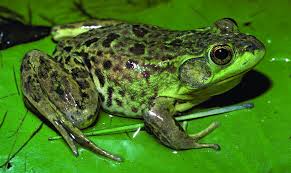 I have Asperger’s Syndrome, and I am a published poet. (Picture above shows me holding a poetry magazine that recently published one of my poems.) And sometimes that is a great comfort to me.
I have Asperger’s Syndrome, and I am a published poet. (Picture above shows me holding a poetry magazine that recently published one of my poems.) And sometimes that is a great comfort to me.
A couple of years back, I applied for Social Security Disability and had to prove, not that I have Asperger’s Syndrome, but that I’ve had it all my life, including before I turned 21. The government expert— who knew all about autism spectrum disorders since he’d worked with institutionalized autistics— told me that if I was a creative person I could not have an autism spectrum disorder. Which is funny since most of the Aspies I have met online are either writers or artists.
Writing poetry— and getting it published— helps me cope. Even though being a poet is famous for not helping the financial bottom line. And I was wondering if other people with Asperger’s, autism or other disabilities might benefit from taking up poetry. After all, writing a short poem is possible no matter how disorganized or autistic you are, so long as you are verbal or can communicate via computer. And it’s a short enough project that even I can get poems finished— I did one this morning.
I had the idea of writing a book on how to write poetry— or how I write poetry— aimed specifically towards people with autism spectrum disorders. Both those who want to write just as therapy or a creative hobby, and those who want to submit poems to poetry magazines as I do.
I am thinking of calling it Constructing Poetry: A Guide for those With Asperger’s Syndrome and Autism. I’ve already written some notes and a partial first chapter.
I doubt a book like that would find a big audience. It’s a very niche concept, and will probably only sell to Aspies and autistics and the parents and teachers of same. But— I’m going to include some of my poems in the book. Probably more than the 24 I have in my chapbook, surly petunia. And I bet it will sell better, as well.
I’m hoping to get some feedback from people who have autism spectrum disorders, What would you like to see in such a book? Have you ever tried writing poetry? What parts of it were easy and what parts were hard? In a very secondary way, I’d like to hear from parents and teachers of folks with autism spectrum disorders as well.
So— now I’d like your feedback on my book project. Good idea or bad? Would you or anyone you know buy it?
To keep up with the latest on the project, go to my FB author page: Nissa Annakindt, poet, Aspie and cat person.


